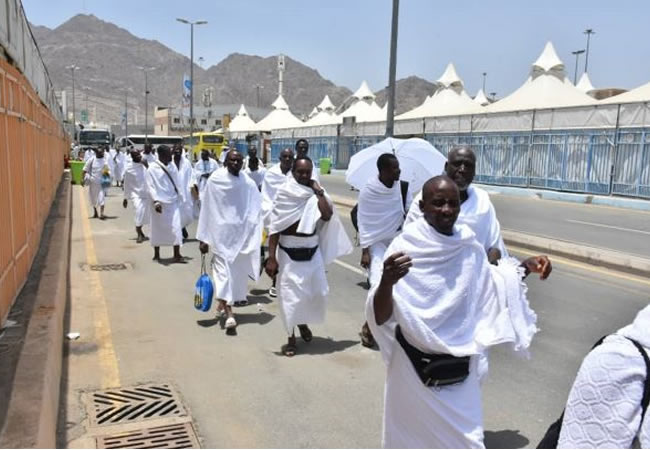In a recent announcement, the National Hajj Commission of Nigeria (NAHCON) confirmed that there will be no concessionary rates or government subsidies for pilgrims intending to participate in the 2025 Hajj to Saudi Arabia. This disclosure was made by NAHCON’s Commissioner for Operations, Anofi Elegushi, following a virtual meeting with Private Tour Operators (PTOs). The commission highlighted that the allocation given by the Saudi Ministry of Hajj and Umrah stands at 95,000 pilgrims for Nigeria, each required to pay a minimum of $6,000, which equates to roughly N9.9 million at the current exchange rate of N1,653/$1. Some states, however, have set preliminary fare deposits at N8.4 million for their intending pilgrims, which reflects an ongoing financial challenge.
Given the rising costs associated with the Hajj pilgrimage, the announcement of no government subsidies is particularly significant. It indicates that intending pilgrims will face high out-of-pocket expenses, demonstrating a stark contrast to prior arrangements, where subsidies provided more financial relief. NAHCON’s statement revealed that there would be a consistent exchange rate for Hajj fare payments across all registered pilgrims, whether they are with state Pilgrims’ Welfare Boards or private tour operators. The implication of this decision points to a larger economic issue, as Nigerian pilgrims may need to allocate up to N10 million for the complete Hajj experience due to the high exchange rate, livening concerns about accessibility and affordability.
In previous years, the Federal Government provided subsidies—a stark contrast to 2025—having allocated N90 billion for the support of 2024 pilgrims. While NAHCON has not yet set deposit rates for the upcoming Hajj, some states like the Federal Capital Territory have made their figures public. The shift to fewer operators—reduced from 20 to 10—also underscores changes in the regulatory environment that will directly impact pilgrims. The Saudi Ministry’s stipulation for private operators mandates that each must register at least 2,000 pilgrims to qualify for visa approval, further limiting participation and increasing migration to established operators in the industry.
Anofi Elegushi also addressed refunds due to pilgrims from past Hajj experiences. A total refund of 150 Saudi Riyals is set for pilgrims who traveled for the 2023 Hajj, while concerns persist regarding the 2022 refunds, especially for certain PTOs. While NAHCON is moving forward with payments for the recent trip, specifics for the previous pilgrimage remain unclear. This refund issue highlights challenges experienced by the commission in managing financial equitability in previous years and the implications for trust in the organization moving forward.
Furthermore, Elegushi clarified financial misconceptions surrounding the 2024 Hajj caution deposit. Contrary to claims of NAHCON owing PTOs about N17 billion related to the N25 million caution deposit, he stated that only N2 billion and N750 million was collected from 110 registered companies. This clarification is crucial, as it positions NAHCON within a more transparent financial framework, which could play a vital role in the future governance of Hajj logistics in Nigeria.
In the Kano State context, the Pilgrims Welfare Board officially announced an N8.4 million deposit for the 2025 Hajj, echoing the directives given by NAHCON. This decision facilitates the collection of deposits through structured frameworks, ensuring that intending pilgrims are guided through the registration process correctly. The director general of the board emphasized the procedural aspects of registration, requiring proper documentation including passport photographs and identification for a smooth Hajj experience. With a specific allocation of 4,356 Hajj seats designated to Kano State, there is an immediate call for local officials to manage these allocations effectively and support the ongoing logistics of the pilgrimage.
Overall, the 2025 Hajj pilgrimage is poised to present additional financial burdens to Nigerian pilgrims due to high costs and the lack of government support. The shift in regulations, particularly concerning Private Tour Operators, and the financial clarifications by NAHCON illustrate a changing landscape for pilgrims as Nigeria aims to navigate the realities of Hajj arrangements amid fluctuating economic factors. The need for careful planning and management by both citizens and religious organizations remains paramount as Nigeria prepares for another round of Hajj activities. This situation captures the intersection of faith, finance, and logistics in one of the largest religious gatherings in the world, raising concerns about broader implications on pilgrim participation and religious outreach in Nigeria.














